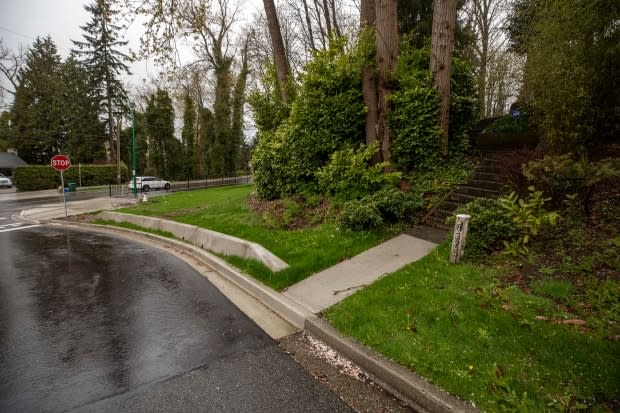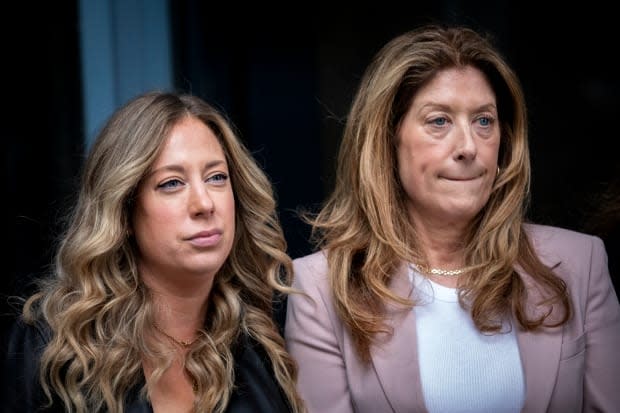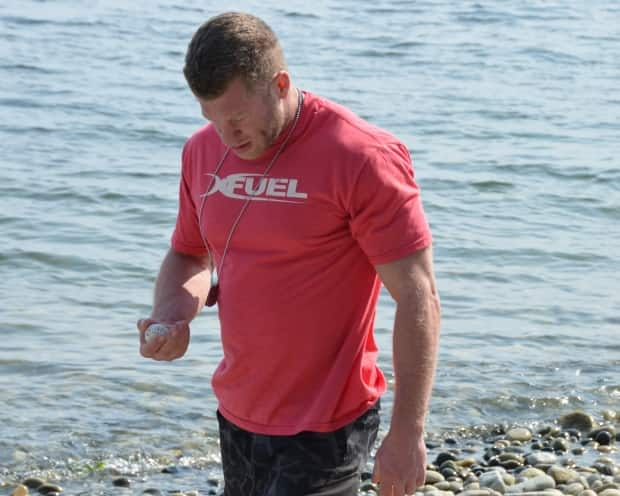Officer testifies senior union rep told him not to write notes after Myles Gray's beating death

WARNING: This story contains distressing details.
An officer with the Vancouver Police Department testified on Thursday that a senior union representative told him not to take handwritten notes after the beating that left a man dead more than seven years ago.
Const. Josh Wong told a coroner's inquest the representative spoke to him as he waited for police watchdog investigators at the department's headquarters after the fight.
"At one point, I had my notebook out and pen in hand, and I was sitting on the seventh floor in a red leather chair, and I was told by a senior [union] member ... not to make any handwritten notes," said Wong, then a junior officer with fewer than 18 months on the force.
"So I did not."
Wong took the stand on the fourth day of a coroner's inquest into the death of Myles Gray, 33, who died in a wooded backyard in Burnaby, B.C., after a confrontation with as many as nine police officers in August 2015. Officers were the only witnesses, as the yard was shrouded from public view, and there is no video footage.
In his testimony, Wong said a number of union representatives were on the seventh floor at police headquarters after the death, and he could not recall which one talked to him about the notes. He said it was not Ralph Kaisers, the head of the Vancouver Police Union.
"It seemed very odd to me," Wong said, referring to the representative's actions.

He said he later typed up a statement in a Word document at home and saved it to a USB stick. The file was uploaded to the police database months later, in 2016.
Wong told the inquest Gray was "actively fighting'' one of three officers already at the scene when he arrived as backup, while another officer had "slurred speech'' and told Wong that Gray had punched him in the face.
Wong said he joined the struggle to restrain Gray, kneeing and punching him. At the end, Wong said officers noticed Gray's skin turning blue, removed the handcuffs, turned him on his back and started chest compressions.
Wong said Gray began "began kicking and flailing and fighting once again" after briefly regaining consciousness.
"He was also screaming somebody's name, a male's name — again, I'm not sure exactly what it was — before he passed away," Wong said.
The officer told the jury he hadn't seen any signs Gray was in medical distress before he went blue.
Note-taking issue part of separate disciplinary proceedings
Allegations of improper note-taking have arisen during a separate investigation into the officers' conduct.
The police chief in charge of the probe said in February six of the seven officers involved in the struggle with Gray might have neglected their duty by failing to take any written notes about what happened the day the man died.
An executive summary addressed to the Office of the Police Complaints Commissioner (OPCC) also said seven officers, including those who have testified to date, might have abused their authority by using unnecessary force during the struggle.
The officers could face discipline as severe as being fired if the allegations are proven, the summary said.
Those hearings have been postponed until after the coroner's inquest.

Multiple officers say Gray exhibited 'superhuman strength'
The inquest has heard from several officers throughout the week who testified that Gray, who was unarmed, was aggressive and threatening their safety after police responded to an initial report saying he had sprayed a woman with a garden hose.
Multiple officers who followed Gray into a backyard on Joffre Avenue near Marine Drive have described their belief Gray was exhibiting "superhuman strength" under the influence of drugs or performance-enhancing steroids.
The officers, including Wong, said Gray continued to resist the officers after being pepper-sprayed, punched, kneed, struck with batons and held in a chokehold.
Wong said he punched Gray in the face after he found repeatedly kneeing Gray in the torso to be "ineffective." He said Gray was soaked in sweat and showed "no signs of pain."
"I was genuinely afraid that he was going to beat me,'' Wong said of the struggle.
During cross-examination, family lawyer Ian Donaldson suggested to Wong that he "took part in this beating that led to [Gray's] death.''
Wong replied he "was only thinking of [his] own safety at the time.''

Officers said Gray was later handcuffed and hobbled, meaning his legs were tied together.
He died at the scene, with his injuries including a fractured eye socket, a crushed voice box, brain hemorrhaging and a ruptured testicle. The injuries were so extensive that forensic pathologists could not confirm a cause of death.
Gray's sister, Melissa Gray, said her brother had been hospitalized and diagnosed with bipolar disorder as a teenager around 1999. She said she believed her brother's condition was stable but agreed he could have potentially been suffering from a manic episode the day he died.
A toxicology expert is expected to testify at the inquest next week. A report from the B.C. Prosecution Service in 2020 said toxicology evidence showed Gray had the drug kratom, a herbal stimulant, in his system.
History of officers' refusal to co-operate
The investigation by B.C.'s independent police watchdog was held up for months as officers disagreed over their duty to co-operate. The Independent Investigations of B.C. petitioned the courts twice to compel the officers to work with them.
The watchdog ultimately sent a report to Crown counsel, believing there were grounds for criminal charges, including manslaughter. Prosecutors did not pursue any charges, in part because of inconsistent and sometimes conflicting testimony around the case.
WATCH | Myles Gray's mother says she wants police to express remorse:
Two police officers on scene said they had not had any mental health training before Gray's death. Two others said they did have such training and have since gone on to leadership roles within the department: Const. Eric Birzneck now works as a use-of-force training officer, and Det. Nick Thompson works with the force's mental health emergency team, known as Car 87.
Before the inquest began, Gray's family learned four of the officers were already under investigation at the time of his death because of an incident that left another man with a broken jaw six weeks earlier. In addition, one of those four officers is awaiting a criminal trial in September for assault related to another arrest that seriously injured a cyclist in 2017.
Two people had called police after Gray wandered into the neighbourhood, swore at a woman and sprayed her with a garden hose as she watered plants outside her co-op building.
Vancouver police responded to the call because the initial incident on the lawn happened in the southeast corner of the city, though Gray later moved east and crossed the border into Burnaby before going into the backyard.
The inquest is scheduled to conclude on April 28.


